We all know that cleaning equipment has evolved over the past years, and there are tools that can thoroughly clean your workspace. If you are troubled with dust, you probably know that like any other high-humidity gas, it sticks on surfaces and is difficult to remove.
Some of the popular options for removing it include dust collectors and shop vacuum units. If you ever saw dust and thought “I need to clean this fast,” these two are the tools that you should most likely consider.
Below, you will find an overview of the main features and differences, as well as a side-by-side comparison covering both types of equipment.
Table of Contents

What Is A Dust Collector System?
Also known as a dust collection system, this product lets you collect dust from any area. One of its main features is to collect the huge amounts of dust that gets stuck when air passes through it.
Still, there is a difference between a dust collector and a dust extractor. Both of them are great at picking large amounts of dust and debris, but using a dust extractor filters out the large-sized particles from the microscopic ones and uses high air volume that travels slower through a wide hose. That being said, a dust extractor is an even better option for professionals who want to collect larger items without blockage or engine trouble.
Now, back to dust collectors.
There are two standard types, including small and large dust collector systems. The smaller one works with one phage system and has a big bag (or barrel) collecting the dust. Large dust collector systems work in two main stages (air suction and filtration), which is why they are a good fit for many industries.
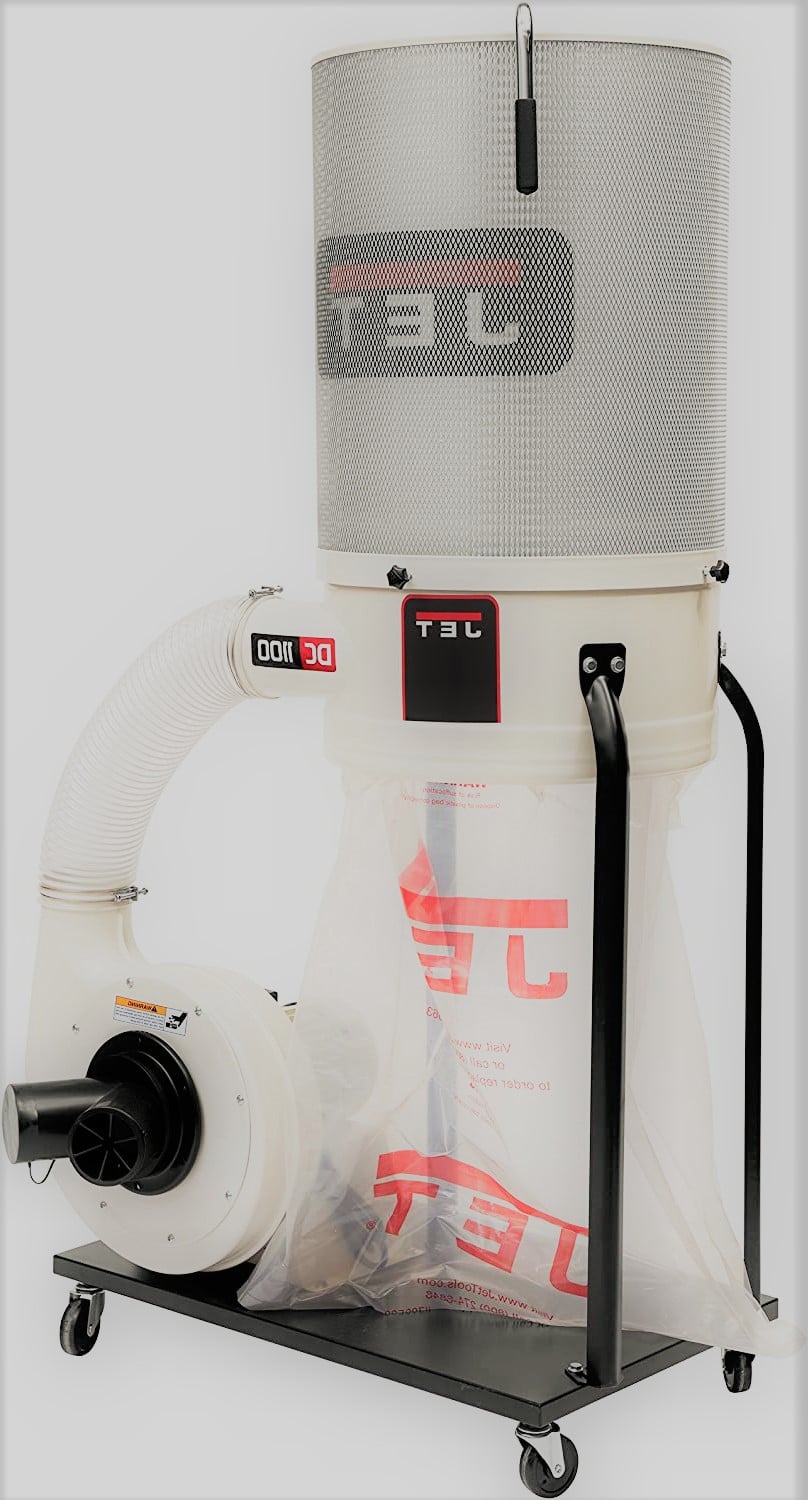
The benefits of a dust collector include the following:
- They remove the dust but also provide fresh air to the outlet
- They clean the environment thoroughly from any harmful ingredients, allowing for breathable and clean air
- They are highly efficient in collecting small and large particles, especially in industry areas
- They don’t create much noise and get the job done perfectly
- They are easy to operate and remove the dust quickly
Aside from their efficiency and ease of use, dust collection units also have some disadvantages, which include the following:
- You need to have several numbers of collecting bags
- You need to replace the bags and use different types of bags for different types of gases
- You have to take out the cooling measurement in any high-temperature area
- Their pressure loss is minimum (1000-1500 PA) because of their resistance
- Since the gas is humid, sometimes you need to measure the humidity
These machines also have a higher air flow but lower static pressure, which makes them good at sucking in all the fine dust particles.
What Is A Shop Vac System?
The shop vacuum or shop vac system is a powerful tool used for cleaning. It can make any area dust-free and is typically used in the construction and woodworking industries. Based on a high-powered engine and with a big canister for holding the dust, it is a great machine for cleaning dirty places, even capable of picking up glass.
Almost every shop vacuum unit uses a one stage system, where it sucks both large and small particles in the same collection canister. A machine like this basically traps all the air inside and captures all of the waste from it. Because of this, shop vacs also function like regular vacuums, and are used to tackle messes that are common in all areas. They are especially handy if you are dealing with a mess that consists of both dry and wet spills or waste.
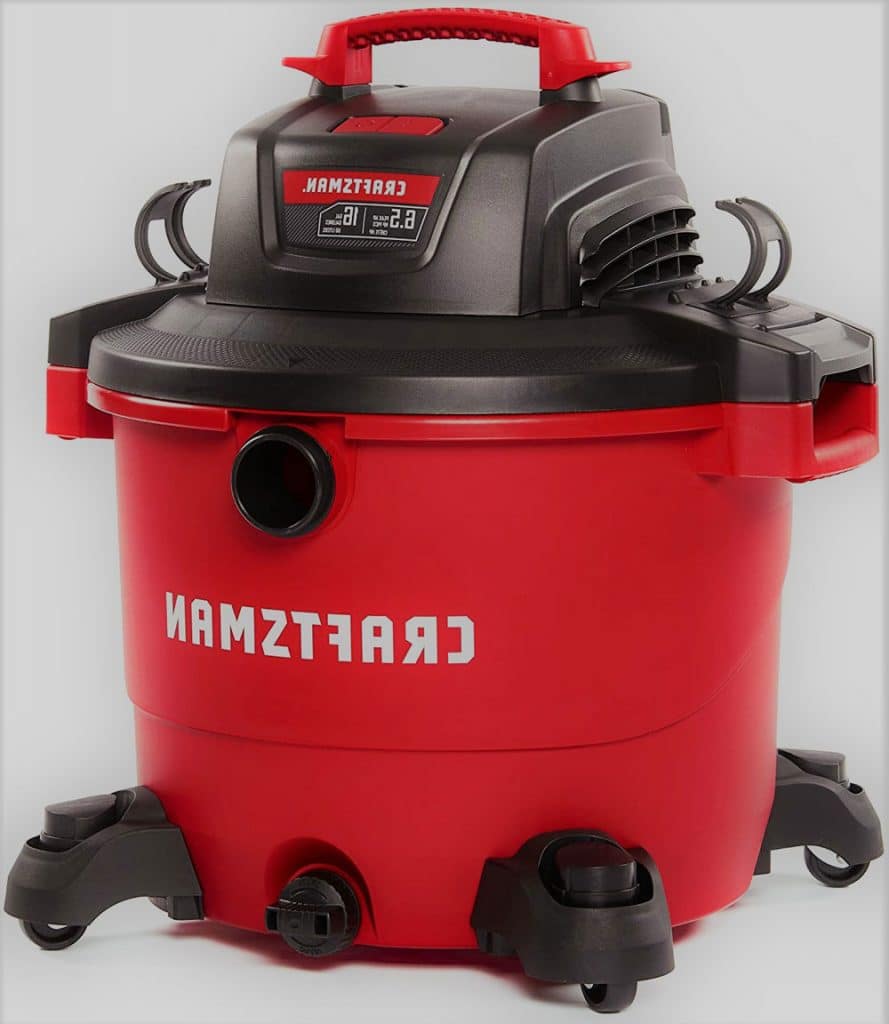
The advantages of a shop vacuum unit are:
- It is cheap, in fact cheaper than many other vacuum cleaners
- You can use a shop vac for messy types of waste (including wet waste)
- It can remove large objects of waste and dust without much disturbance
- Since they can blow air from the hosepipe, many professionals use shop vac units as pumps
The drawbacks of shop vac units are:
- They are not the best solution for filtering air (they are made for cleaning and do not contribute to making the air breathable)
- In most of the cases, shop vacs are heavy and bulky, making them difficult to move around
- The amount of electricity that shop vac tools consume is bigger – especially the models with higher Watt power
That being said, shop vacs are good because of their ability to get the job done quickly and remove any dust and larger particles.
The Main Difference Between Shop Vacs And Dust Collectors
Some would say that comparing shop vacuum tools and dust collectors is like comparing apples to oranges. However, since their main function is to remove dust, we can definitely compare them machine to machine.
The main similarity between both tools is the fact that they both make the cleaning process easier, which is their main purpose. However, the uses and the ways these tools get the job done is not the same.
So, the key difference is that dust collector machines can also be used for air cleaning, while shop vacs cannot. You can clean any room or area with a shop vacuum, but won’t get much success in making the air more breathable. Dust cleaners are better for this purpose, mostly because they process the air and remove the dust and waste from it.
Dust Collector Vs Shop Vac: Side-By-Side Comparison
There are many areas from where we can compare the features of a dust collector and a shop vac. Both of these machines are effective for the house, garage or professional workshop.
Still, we believe that many of you would appreciate a side-by-side comparison where we talk more about the differences, as well as their unique features and mechanisms. Below, we are doing that and exploring features like intake hole size, versatility, CFM, stage air suction, size, best uses, average price range and more. Our goal is to show you how these power tools differ from each other.
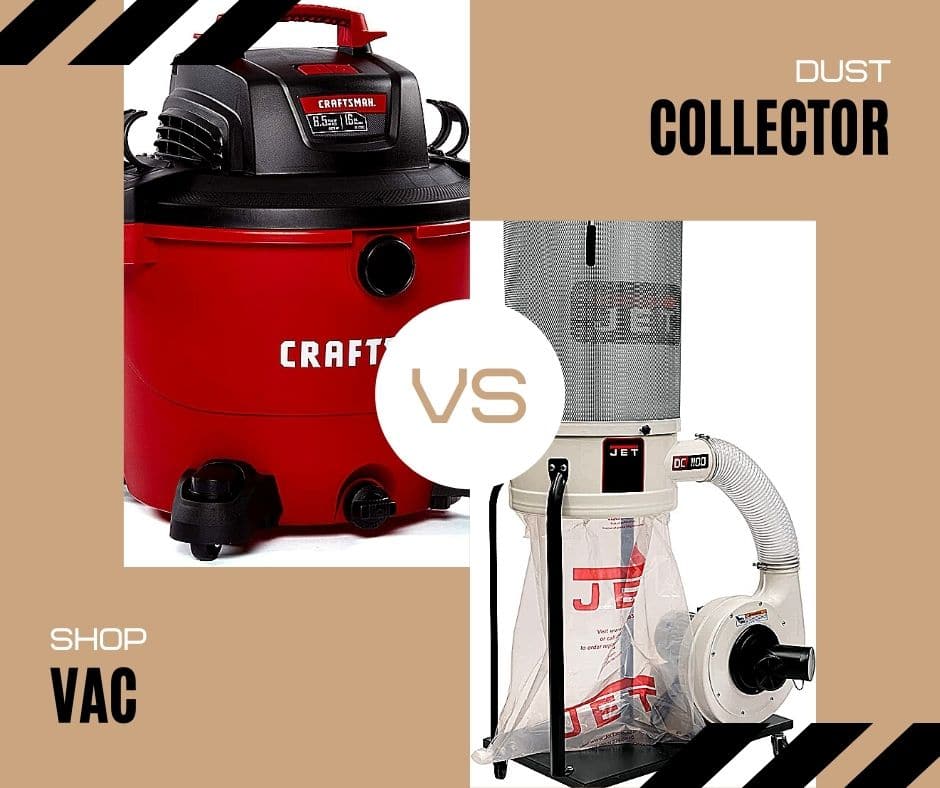
Mechanism And Lift Count
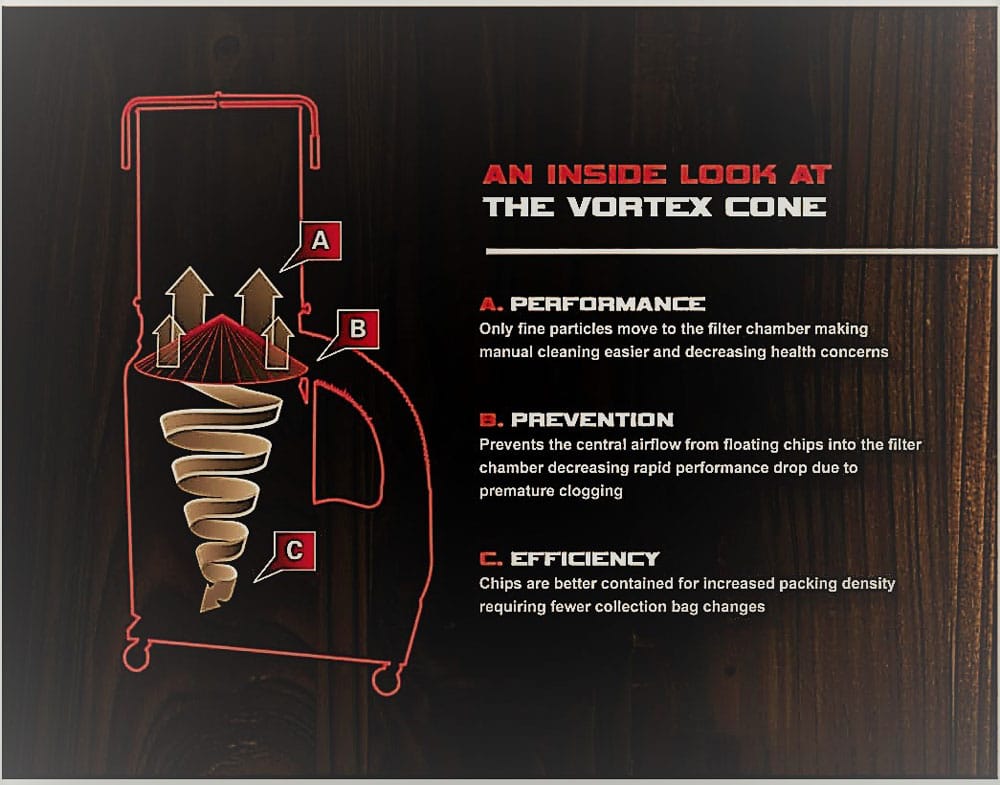
The first thing that we need to compare is the mechanism through which both power tools operate. Also, we will go over the lift count, which is basically how powerful these machines are to lift things from the ground.
A key difference worth mentioning is that dust collectors work with a high volume and low pressure mechanism. On the other hand, when we compare a dust collector vs shop vac, we will see that shop vacuums work with a low volume and high pressure mechanism.
What does all of this mean?
Well, dust collectors are designed to be highly useful in cleaning up the workshop, which is also why they are known as dust extractors. They are simply more effective when extracting dust, but their mechanism is more complicated, too.
Shop vacuums are a power tool that is optimized to deliver speed rather than collect greater volumes of dirt. Their low-volume and high-pressure mechanism delivers high vacuum power to suck up dust and debris faster, for which they use large and more powerful motors.
However, sometimes issues can arise when dealing with liquids, such as the shop vac blowing out water instead of sucking it in. If you encounter this problem, you can refer to our guide on why is shop vac blowing out water and how to fix it.
If your shop vac is blowing out air, it could be due to a number of reasons. We’ve put together a guide on why your shop vac might be blowing out air to help you troubleshoot.
To sum things up, the mechanism of a dust extractor is designed to be useful in cleaning dirtier areas, while the one found in shop vacs has a stronger engine and with that, a greater lift count.
Debris Separation
Another factor that many would consider when choosing between a dust collector and a shop vac is the extent to which both of these dust collecting machines are able to separate the debris.
From this perspective, the dust collector system is an obvious winner. As we said in the beginning, a tool like this uses a 2-stage mechanism that allows for effective separation of debris into small particles for easy disposal. With its filters, it is able to separate the cyclone trash on one side, and dust on the other.
Unlike dust collectors which only collect dust, dust extractors are even better in separating debris and dust from the air, allowing the air to pass and filtering out all of the dirt.
Intake Hole Size
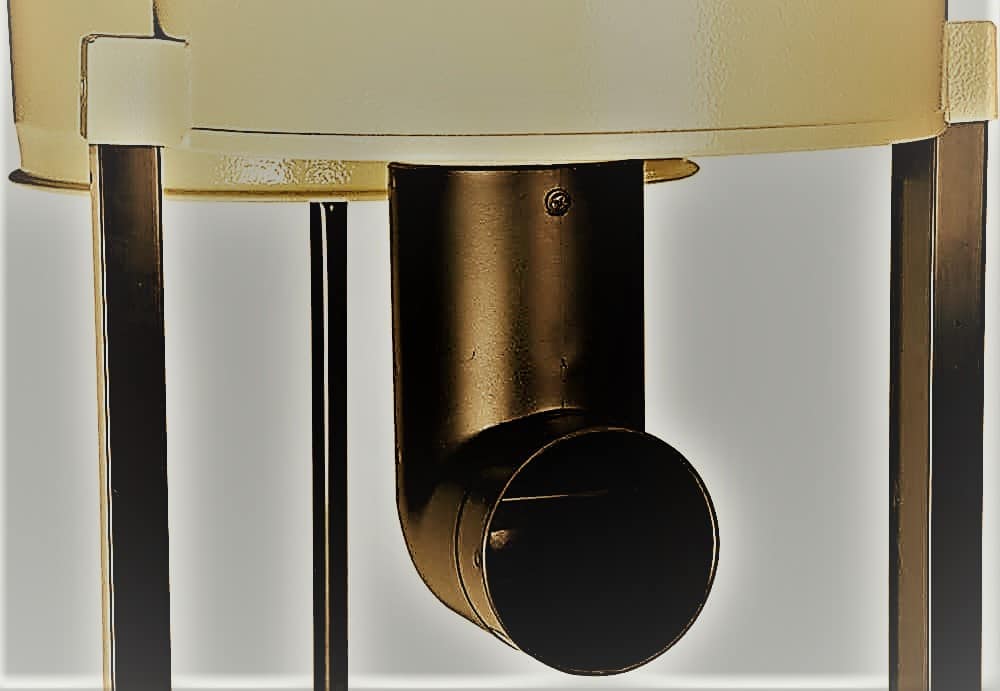
The intake hole size is another factor that needs to be considered. It determines the size of the hose that you can hook up both machines with, and how they get the job done with that in mind.
Here, dust collectors have larger intake hole size of around 4 inches on average, which gives them higher capacity and an option to connect a larger hose.
As a result, their flex hose is optimized to collect more material with a higher CFM (Cubic Feet per Minute) coverage. In comparison, shop vac units have smaller intake holes that range between 1.5 and 2 inches in diameter, which gives them lower CFM.
Versatility
How versatile the tool is matters a lot, especially for professionals who want to use it for different purposes. When it comes to versatility, shop vacs are better than dust collectors – their ability to handle dry and wet materials makes them more practical and versatile.
In addition to this main difference, shop vacuums come as multipurpose tools that besides dust extraction, can also help with regular vacuum cleaning jobs. Some models also come with a detachable blower that can be used for many other tasks. The dust collector system is not a machine that is optimized to deliver these.
Air Filter
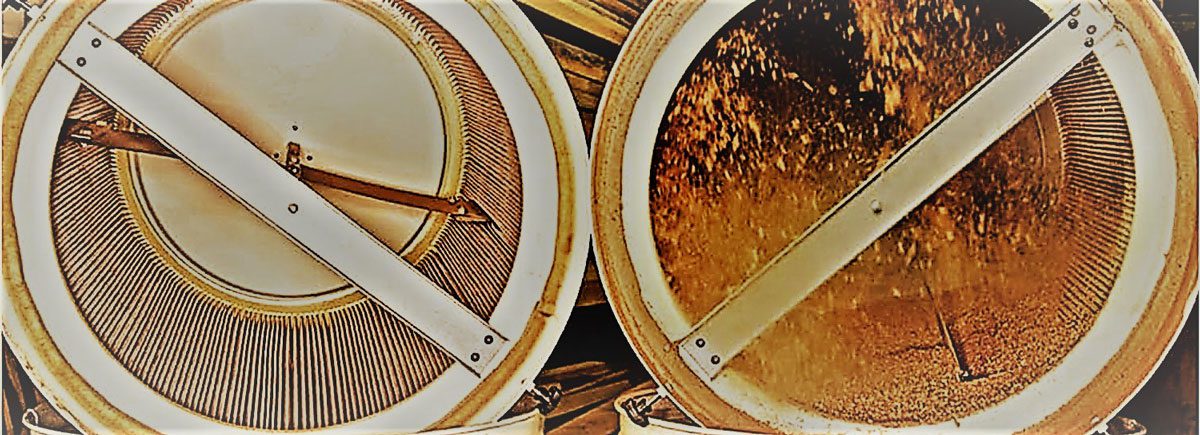
Both of these machines have HEPA cartridge filters which qualify them as equipment for collecting dust. There are different variations of the HEPA filter found in each specific model, but the general conclusion is that these filters, by definition, remove 99.97% of dust, pollen, mold, bacteria, or any other airborne particles with a size of 0.3 microns.
Size
Size is the next topic of discussion. There are plenty of size differences of both machines, no matter which specific shop vac or dust collector model you choose. However, the general info shows that size matters a lot in regards to your specific needs.
Generally speaking, shop vacs often come in smaller and more compact sizes. They are designed to be used along with other small equipment and for smaller areas.
Dust collectors are designed for high volume and often industrial use, which makes them naturally larger. There are models that include large dust collection bags which can be a bummer for people with smaller shops.
Price
When it comes to price, it is always a decision that you need to make on your own. Consider how much you are spending on your tool in the first place before choosing a vacuum or a collector for your needs. After all, there are both cheap and expensive products in both categories.
From a general standpoint, shop vacuums will offer a more affordable price tag because they are smaller and suited towards smaller areas. They are also cheaper to maintain. The average price for a good shop vac is anywhere from $100, and there are fancy tools with more features that cost up to $300.
Dust collector units are a bit more expensive. The basic models with two stages mechanisms start at $200, and there are industry-grade models that are priced at $500 or even more.
Best For
The general user experience of both machines is on a high level. They are both efficient and reliable in managing dust and debris in shops, homes or any other place.
The main differentiator that separates them in this category is their size and mechanism. Dust collecting machines are best used for connecting to large stationary tools and removing any sort of waste material while emitting less debris. Shop vac units are smaller and more mobile, which is why many people use them around the home or in their small shops. Also, they are perfect for use along with other small handheld tools.
Final Verdict
In the last few words, we will mention that every machine has an ideal target audience and is used for different needs.
If you are looking for a tool that can help you clean up after you are done with your small home/garage DIY projects or a tool that you can use in your wood shop, a shop vac is right for you.
However, if your DIY projects include a lot more complex and involve wood dust, wood chips, sawdust etc., you should think about a dust collector that will safely trap any harmful pollutants from the air once you are done.
For professional and industry use, dust collector units are also better. Compared to a vac, a machine like this can safely trap the dust from the air and ensure that workers are safe and keeping the area free from pollution.
But if you have a wood shop and you need a small tool that will help you clean it on a regular basis, a shop vacuum is something you should consider.
Further Reading
- Explore our comprehensive guide on the Best Quiet Shop Vacs to discover top models that combine efficiency with whisper-quiet operation, perfect for maintaining a peaceful work environment in your home workshop.


